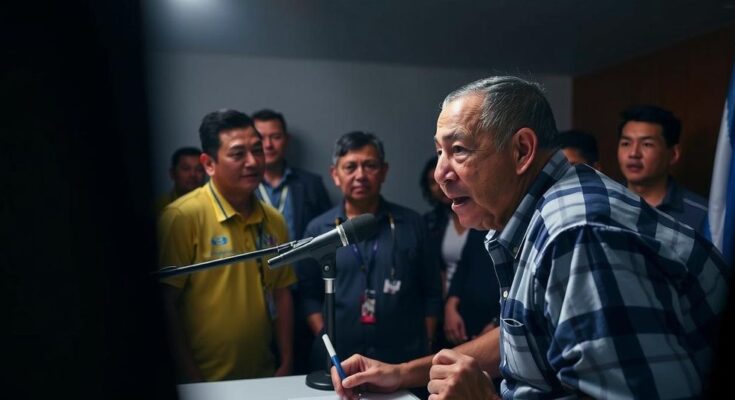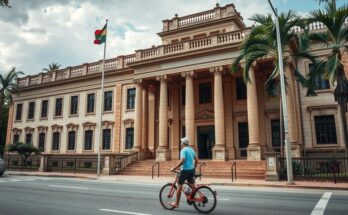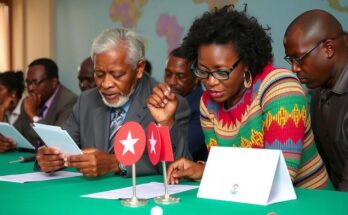Uruguay will hold a presidential runoff featuring centrist candidates, with a tight race defined by a narrow polling margin of 25,000 votes. Voters from fringe candidates, like anti-vaccine activist Gustavo Salle, hold sway over the election outcome. The broader political context highlights ongoing economic improvements and persistent societal issues, making electoral engagement critical for both major candidates.
In Uruguay, citizens will be voting in a closely contested runoff for the presidential election. The election features two centrist candidates: opposition center-left mayor Yamandu Orsi and conservative Alvaro Delgado from the ruling coalition. Recent polls indicate a margin of just 25,000 votes, which underscores the significance of voters who supported fringe candidates in the initial round. Anti-establishment candidate Gustavo Salle, known for his unconventional stance on vaccines and social issues, may influence the election outcome as he garnered around 3% of first-round votes.
The South American nation, with a population of approximately 3.4 million, is preparing for the election on November 24. Although the country experiences improving economic conditions, including lower inflation and increasing employment, issues like high living costs, poverty, and crime remain prevalent. With President Luis Lacalle Pou unable to seek re-election, both leading candidates are striving to engage the nearly 8% of voters who had opted for smaller parties or abstained from voting in the previous round.
Political analysts highlight that neither candidate has effectively addressed the needs or concerns of the electorate since they have largely avoided new pledges aimed at garnering support from fringe voters. Salle, who attained two congressional seats, encouraged his followers to consider casting protest votes. Orsi, having secured 43.9% in the first round for the Broad Front, is positioned against Delgado, who represents a coalition that collectively received nearly 42% of votes but lacks a majority in the lower house.
Some voters express skepticism about both candidates’ ability to represent their interests. The potential for increased voter abstention could favor Delgado’s coalition, while the Broad Front must attract new voters to contend for the presidency. This election illustrates the complexities and potential volatility within Uruguay’s political landscape as it navigates centrist choices against the backdrop of diverse political sentiments.
The upcoming presidential runoff in Uruguay features significant competition between two centrist candidates due to an unusually close election dynamic. The political scene is marked by the emergence of fringe candidates who have created an intricate voter landscape, impacting the traditional left-right divide typically observed in global politics. With rising economic indicators but ongoing societal issues, such as inequality and crime, the electorate’s prevailing sentiments remain critical in determining the future leadership of the country. The contrasting promises and platforms of candidates Orsi and Delgado illustrate broader themes of modern centrist politics in Uruguay, framed against the backdrop of anti-establishment sentiments expressed by voters who favored fringe candidates in the first round.
The forthcoming presidential runoff in Uruguay presents a tightly contested landscape where fringe votes could determine the outcome. With two centrist candidates vying for the presidency and the electorate divided over economical and social issues, the significance of smaller party supporters cannot be overlooked. As both candidates work to galvanize potential supporters, the evolving political scenario underscores the unpredictable nature of voter behavior in light of pressing national concerns.
Original Source: www.usnews.com




